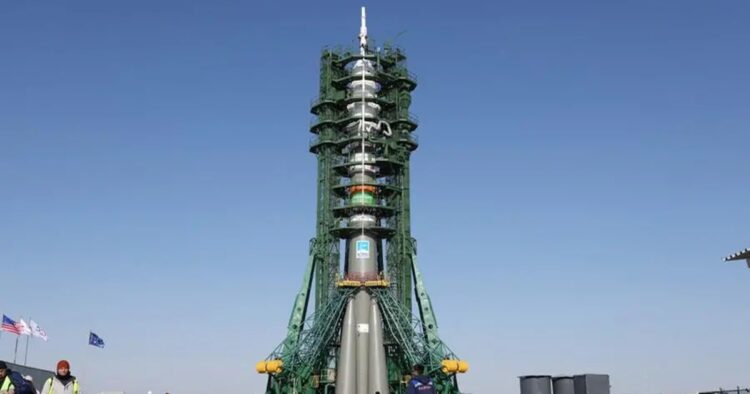In an unexpected turn of events on Thursday, the eagerly anticipated launch of a Russian Soyuz spacecraft carrying cosmonauts from Russia and Belarus, along with an American astronaut, to the International Space Station (ISS) was abruptly called off just seconds before liftoff. The Soyuz rocket, poised for departure at the Baikonur cosmodrome in Kazakhstan, saw its main supports retract as mission control announced “Launch!” But within moments, the live stream broadcasted the disheartening message of an “automatic cancellation of the launch.”
Officials from Roscosmos, the Russian space agency, expressed regret as they informed viewers of the sudden cancellation, citing an undisclosed reason for the interruption. The disappointment was palpable as spectators awaited an explanation for the unexpected turn of events.
The scheduled liftoff, originally set for 1321 GMT, aimed to facilitate a swift journey for the crew to dock with the ISS shortly after departure. However, the thwarted launch dashed these hopes, leaving the spacecraft grounded and the crew’s mission delayed.
Among the crewmembers affected by the aborted launch were NASA astronaut Tracy Dyson, Russian cosmonaut Oleg Novitsky, and Marina Vasilevskaya from Belarus, all poised for their journey into space. The trio, visibly prepared for the mission, faced the disappointment of a postponed departure, with uncertainty looming over the rescheduling of their space voyage.
Notably, Novitsky and Vasilevskaya had plans for a brief stay aboard the ISS, scheduled for just 12 days, with a mission to accompany Loral O’Hara back to Earth on April 2, as outlined by NASA. Meanwhile, Dyson’s mission extended far beyond, as she was slated to spend six months conducting crucial experiments aimed at advancing technology for future space endeavors.
Despite the setback, both NASA and Roscosmos assured the public of the crew’s safety, emphasizing that the spacecraft remained secure throughout the aborted launch. With the next opportunity for liftoff scheduled for Saturday, anticipation remains high as the crew and space agencies regroup for another attempt to reach the ISS and fulfill their mission objectives.
The unexpected cancellation serves as a poignant reminder of the inherent risks and challenges associated with space exploration, underscoring the importance of diligent preparation and steadfast resilience in the pursuit of scientific endeavors beyond Earth’s atmosphere. As the global community eagerly awaits the next launch window, hopes are pinned on a successful journey for the crew as they embark on their mission to the International Space Station.

















Comments